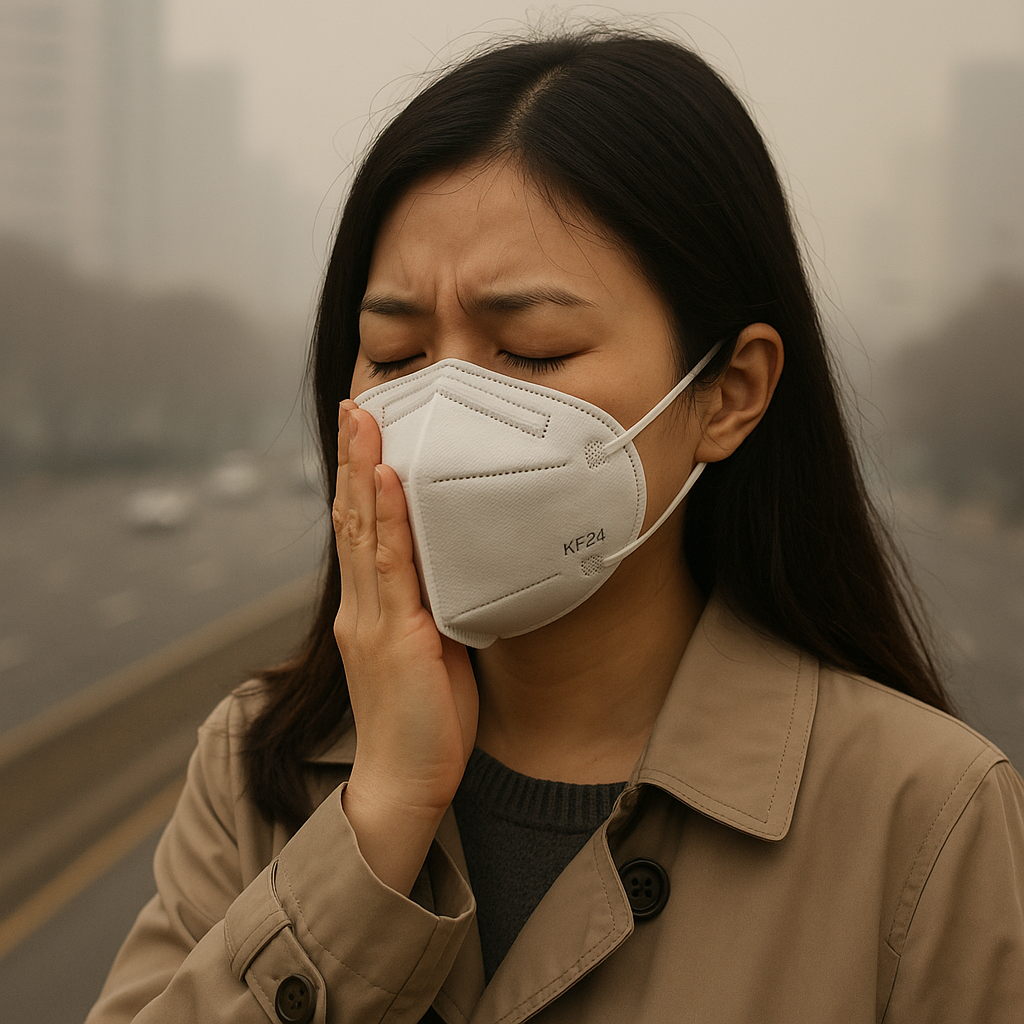페이지 정보
본문

Impact of Fine Dust on Health and How to Avoid Them
This podcast covers the topic of fine dust since this has been a big issue in South Korea. The purpose of the podcast is to raise awareness of the effects of fine dust on human health and ways to keep oneself safe from those effects.
Recorded by Munisa
21.04.2025
Script
Good time of the day! This is Munisa. Today I'm talking about fine dust. Fine dust is a serious health issue in South Korea, especially during spring and early summer. It can have serious short-term and long-term effects on your health and daily life. South Korea experiences this regularly due to industrial pollution, vehicle emissions, and seasonal yellow dust from China and Mongolia. Its short-term effects may include eye irritation (redness, itchiness), throat dryness and cough, shortness of breath, fatigue, or dizziness, worsening of asthma symptoms, skin irritation or breakouts. I personally can relate to some of the symptoms, such as eye irritation (especially on days I wear contact lenses) and skin irritation. When I arrived in Korea, the first thing that was affected was my skin: I experienced breakouts and hyperpigmentation on my face. Apparently, it was because of fine dust here. Anyways, there are more serious long-term effects of the dust, including respiratory diseases such as chronic bronchitis, asthma, COPD; increased risk of stroke or heart attack; weakened immune system; increased risk of lung cancer; developmental issues in children (especially with long exposure in early years). Once you understand the consequences of the fine dust, you won't ignore the seriousness of the issue. That's why I think we should spread the knowledge and raise awareness. Now, let's talk about how we can protect ourselves from its effects. First and foremost, wear a Certified Mask. Use KF94 or KF80 masks — they filter out 94% and 80% of fine particles, respectively. Avoid cloth or surgical masks for fine dust — they’re not as effective for dust. Also, make s sure it fits snugly around your nose and mouth. Secondly, there are apps to check the Air Quality Apps as AirVisual, Kakao Weather, or 미세미세 (MiseMise). Make sure to check the air quality before going out. Generally I would recommend staying indoors on High-Dust Days if possible. Limit exercise or long walks outside when the air quality index is high. Keep windows closed on dusty days. Use an Air Purifier at Home Clean or replace filters regularly. More importantly, stay hydrated and eat antioxidant-rich foods. Because fine dust can cause inflammation and drinking water helps flush toxins. Eat foods high in vitamin C, E, and omega-3s (like spinach, blueberries, almonds, and salmon). Shower after being outside: Dust particles can stick to your hair and skin, so wash your face and hands after coming inside. Last but not least, protect sensitive areas. If you wear contact lenses, consider switching to glasses on bad air days to avoid irritation. Use saline spray or eye drops to clear out particles. I hope these tips help you minimize the effects of fine dust. Thank you for listening to this podcast. Stay safe!
첨부파일
-
5202207080613704304.mp3 (3.5M)
0회 다운로드 | DATE : 2025-04-21 13:43:30
